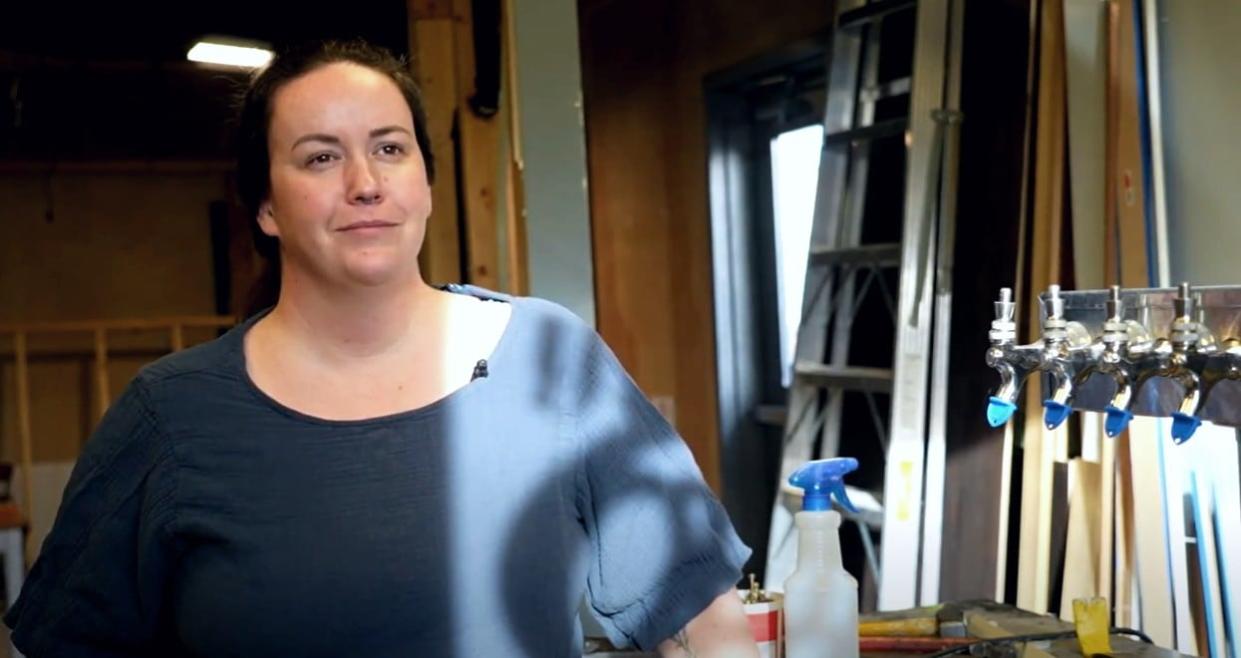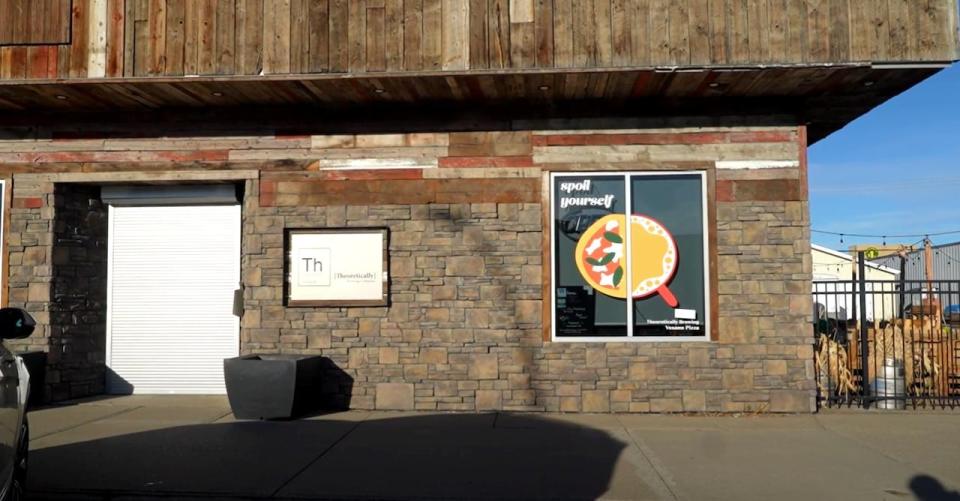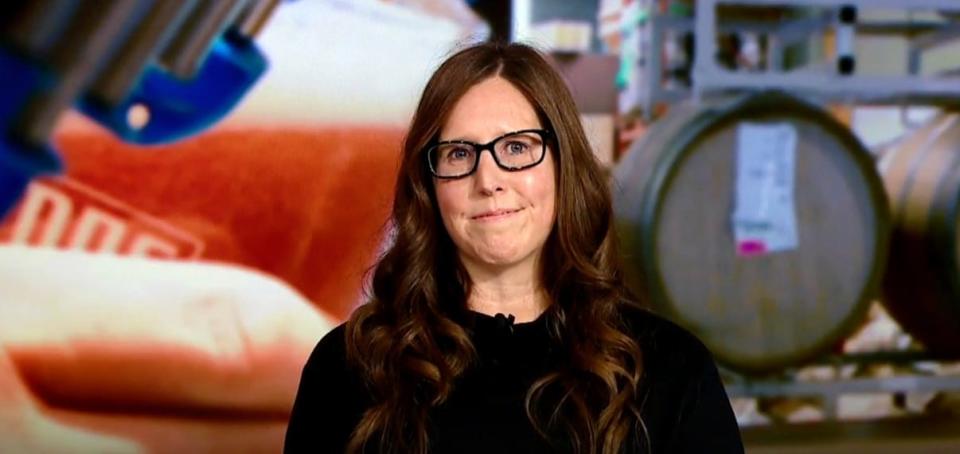If you've ever dreamed of owning part of a brewery, now's your chance

It's a tough time for some breweries in the province.
They faces rising costs, a tax hike and looming deadlines for COVID-era federal emergency loan repayments. On top of that, Statistics Canada recorded an all-time low for beer volume sales per person in the country during the 2021-22 fiscal year.
Theoretically Brewing Company, a nano-brewery in Lethbridge, is getting creative as it confronts these pressures, by giving locals the opportunity to become shareholders in the business.
Owner Keltie Baird said she hopes the move will have a twofold impact: giving the brewery an injection of funding to meet its upcoming business goals while building into the local community.
"Instead of going back to a bank to refinance, we are actually coming to the community and we are offering a chance for people to come into the brewery and own it and have a say in it and how it's run, which is really cool."
Baird said 2023 was the first year since the onset of COVID-19 restrictions that the brewery experienced uninterrupted operations. While business is headed in the right direction, it's still not at the level it was before the pandemic began, she added.

A street view of Theoretically Brewing Company, a nano-brewery in Lethbridge, Alta. (Ose Irete/CBC)
By opening up a number of Class C non-voting shares, priced at $500, Baird said she hopes the brewery will be able to make some headway on its loan repayments, and make some new equipment purchases, albeit in an unconventional way.
"What we've done is really turned this business into a community space, and a lot of people are very emotionally invested in this operation," said Baird.
"So we wanted to give them the opportunity to become more invested … in a way that isn't the typical exchange [of] money for goods, right? It's more [that] you're going to have a lasting impact in this place, and we look forward to many more years of service to the community."
Baird said shareholders won't have the ability to vote at the company's AGM, but their concerns and ideas will be heard. Shareholders will be paid in dividends at the end of each fiscal year, will be sent special monthly updates, and will receive a 10 per cent discount on all products.
Business having to adapt
Theoretically Brewing Company won't be going anywhere if it doesn't meet its investment target, said Baird. But it would mean that certain business expansions would have to be put on hold in light of some new and ongoing financial burdens.
The deadline for repaying business loans backed by the federal government's Canada Emergency Business Account, or CEBA, is Jan. 18. So far, the loans of up to $60,000 have been interest free, but if businesses don't meet the repayment deadline, they will have to refinance, paying five per cent interest on their loans over the next three years.
"It adds up very quickly," said Baird.

Blair Berdusco, the executive director of the Alberta Small Brewers Association, said she remains optimistic on the outlook for the province's brewers, despite current pressures. (CBC )
Blair Berdusco, executive director of the Alberta Small Brewers Association, said CEBA loan repayments aren't the only financial issue on the horizon for the province's breweries.
The federal excise tax, which is hiked every year, is set to rise by 4.2 per cent this April. Last year, the tax was capped at two per cent, which brought relief to a lot of brewers, said Berdusco.
Berdusco added that inflation has raised the cost of agricultural inputs (in some cases by 60 per cent) and the cost of product packaging (up to 30 per cent).
Despite these challenges, Berdusco remains optimistic about the outlook for breweries in the province, and she said there are several ways that operations are already adapting to a changing market.
"So we have seen a decline in beer specifically since about 2009, so a lot of breweries are looking to other products that they can make, said Berdusco.
"Over the last couple of years, there's been an increase in refreshment beverages, like canned vodka sodas or gin and tonics, and a big increase especially in non-alcoholic [beverages]."
In addition to switching lanes to meet consumers where they're at, Berdusco said breweries are looking to new markets outside of Canada to carry their products, such as the United States, Asia, Europe and Central and South America.
That's because liquor stores in B.C., Ontario and Quebec are publicly owned, making it more difficult for Alberta brewers to enter into those markets, said Berdusco.
Some industry experts predict that as many as 10 per cent of the province's breweries could close their doors this year in the face of multiple hardships. Baird said she knows of four establishments that have already shuttered operations.
Berdusco, however, said that's only half the story.
"Last year, over a dozen breweries opened in the province," she said.
"I think that bodes well for the fact that there are some areas of the province that aren't saturated and they do want breweries to come in, especially rural communities."


